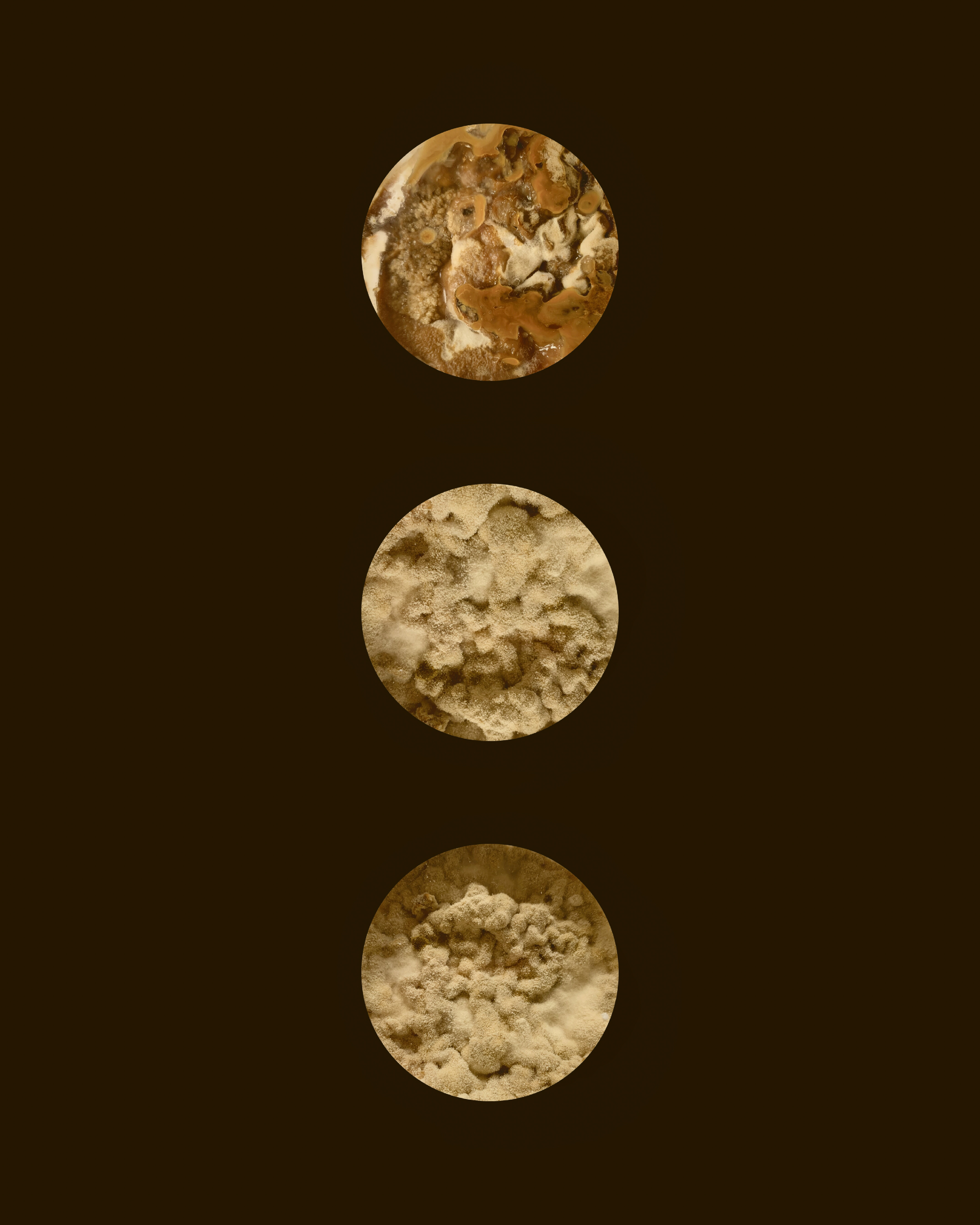ISS MISO
RESEARCH
FLAVOUR EXPERIMENT ON THE INTERNATIONAL SPACE STATION.

Just as food on Earth reflects its place and people, space fermentation has the potential to develop its own kind of “terroir,” expressing the character of life beyond our planet.
In this study, we investigated whether food fermentation is possible in space and how it compares to Earth-based fermentation. We produced miso, a traditional Japanese condiment, on the ISS over 30 days and compared it with two Earth-bound controls to examine microbial growth and flavour chemistry.
The miso mixture was prepared using cooked soybeans, rice kōji, and salt. It travelled to space in a small box outfitted with a camera and sensors to measure temperature, humidity, and radiation.
Paper in iScience ->

ISS-grown miso and two Earth-grown control samples.
Collaborators:
Joshua Evans
Engineering: Peter Dilworth
System and electronics: Jamie Milliken, Patrick Chwalek
Food science: Karoline Koth, Tiffany Shang Heng Mak, and Nabila Rodriquez
Supported by: MIT Space Exploration Initiative
Special thanks:
MIT Media Lab
Sustainable Food Innovation, Danish Technical University
Harvard University